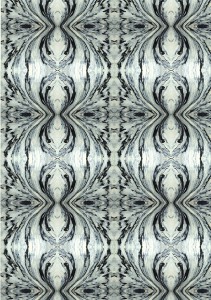 “Where now? Who Now? When now?
“Where now? Who Now? When now?
Unquestioning. I, say I. Unbelieving. Questions, hypotheses, call them that. Keep going, going on, call that going, call that on. Can it be that one day, off it goes on, that one day I simply stayed in, in where, instead of going out, in the old way, out to spend day and night as far away as possible, it wasn’t far. Perhaps that is how it began. You think you are simply resting, the better to act when the time comes, or for no reason, and you soon find yourself powerless ever to do anything again. No matter how it happened. It, say it, not knowing what. Perhaps I simply assented at last to an old thing. But I did nothing. I seem to speak, it is not I, about me, it is not about me. These few general remarks to begin with. What am I to do, what shall I do, what should I do, in my situation, how proceed? By aporia pure and simple? Or by affirmations and negations invalidated as uttered, or sooner or later?
Generally speaking. There must be other shifts. Otherwise it would be quite hopeless. But it is quite hopeless. I should mentions before going any further, any further on, that I say aporia without knowing what it means. Can one be ephectic otherwise than unawares? I don’t know. With the yesses and the noes it is different, they will come back to me as I go along and how, like a bird, to shit on them all without exception. The fact would seem to be, if in my situation one may speak of facts, not only that I shall have to speak of things of which I cannot speak, but also, which is even more interesting, but also that I, which is if possible even more interesting, that I shall have to, I forget, no matter. And at the same time I am obliged to speak. I shall never be silent. Never.”
Opening paragraph to The Unnamable by Samuel Beckett
Contemporary philosopher Alain Badiou asks if we can name a truth, anticipating and forcing into knowledge all the elements contained in that truth, risking a totality of knowledge related to it; a problem, for example, in politics where this turns to totalitarianism. He says, “The construction of a truth is made by a choice within the indiscernible…But the potency of a truth depends on the hypothetical forcing…The problem is to know whether such a potency of anticipation [hypothetical forcing] is total…My answer is there is always, in any situation, a real point that resists this potency.
I call this point the unnameable of the situation. It is what, within the situation, never has a name in the eyes of truth. A term that consequently remains unforceable. This term fixes the limit of the potency of a truth. The unnambeable is what is excluded from having a proper name, and what is alone in such exclusion. The unnameable is then the proper of the proper, so singular in its singularity that it does not even tolerate having a proper name. The unnameable is the point where the situation in its most intimate being is submitted to thought; in the pure presence that no knowledge can circumscribe. The unnameable is something like the inexpressible real of everything a truth authorizes to be said.”
Alain Badiou from Infinite Thought
The unnameable is something I have personal experience with. The secret and the truth. I’ve held both of these things, safeguarding, I thought, others and myself. Both secret and truth can be destructive if kept silent. But it has been my experience that once spoken, the unnameable is an agent of transformation; it comes in facing what’s real.
Read more of my interview, When Context Takes The Game, conducted by Becky Huff Hunter for This ‘Me’ of Mine.
——————————-
Beckett, Samuel, Three Novels Molloy, Malone Dies, The Unnamable, Grove Press, New York, The Unnamable, originally published under the title L’Innommable, copyright © 1953 by Les Editions de Minuit. Translation copyright © 1958 by the Estate of Samuel Beckett, pp. 285-6.
Badiou, Alain, Infinite Thought, Continuum International Publishing Group, London, New York. Trans and ed by Oliver Feltham and Justin Clemens, 2005 – 2011. “Philosophy and Truth”, pp. 43 to 51, originally titled “The ethic of truths: construction and potency” quote p.49.
